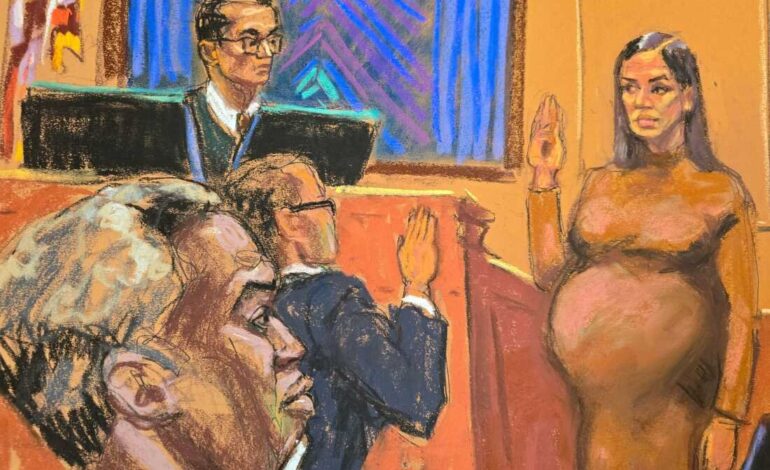Juror Speaks: How Prosecutors’ Baby Oil Stunt Backfired in Diddy Trial

A hush unfolded beneath marble pillars, weaving a tapestry of courtroom drama that felt more like epic verse than legal sparring. In the annals of celebrity trials, few episodes have dripped with such oily intrigue as the spectacle of 1,000 seized bottles of baby oil used to smear Sean “Diddy” Combs as a criminal freak. George, an alternate juror who observed every tense moment from the gallery, now lifts the curtain on prosecutors’ most slippery gambit—and how it failed to hold sway.
George recalls how the prosecution poured resources into those bottles, hoping the sheer volume of baby oil would cast Diddy as a deviant mastermind. Yet defense attorney Marc Agnifilo turned that slick strategy into comic relief, quipping that the feds had done more to lubricate comedy clubs than to protect city streets. A ripple of laughter undercut the government’s solemn narrative, revealing that humor can sometimes thwart hardline accusations.
The so-called “freak-off” videos, intended to darken Diddy’s image, instead flickered with consensual heat. Scenes featuring Cassie and “Jane” anointing a consenting adult performer with baby oil were offered as evidence of a sex-trafficking ring. But George insists every interaction he witnessed felt mutual and uncoerced, undercutting the prosecution’s thesis. The expected shock factor evaporated, leaving only the sheen of a failed moral crusade.
Prosecutors also tried to ignite outrage by linking Diddy to a Molotov cocktail hurled into Kid Cudi’s car, yet no concrete chain of custody or eyewitness testimony tied him to the act. The alleged Capricorn Clark warehouse kidnapping faced a similar fate: courtroom transcripts show that Agnifilo’s closing argument teased jurors that if anyone was truly “kidnapped,” it was themselves, chained by courthouse schedules from 9 to 5. That rhetorical flourish underscored a failing case, turning legal battleground into theater of the absurd.
When the jury withdrew, they delivered partial vindication: Diddy acquitted of racketeering and sex trafficking, but found guilty on two counts of transporting a sex worker across state lines. It was a major blow to the prosecution, a narrative that began with the promise of blockbuster convictions and ended in a muted whisper.
Now, as sentencing looms, prosecutors aim for roughly four years behind bars. Yet federal guidelines hint at a lighter fate—possibly under two years, even nearer to one. Thus, what began with high-stakes swagger may close with a sentence that feels more footnote than finale.
And so the final gavel echoes into memory, leaving behind a courtroom stage slick with irony and fractured ambition. A bittersweet ending, or merely the beginning of another act in Diddy’s storied saga?
Sources: Celebrity Storm and TMZ, Court Transcripts
Attribution: Creative Commons Licensed




